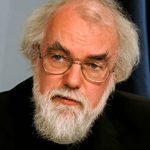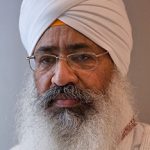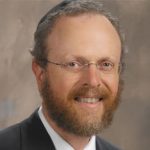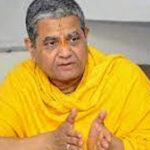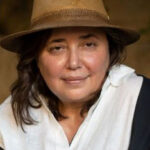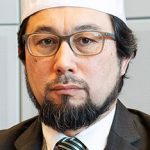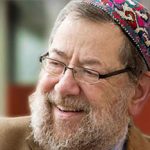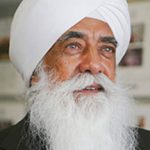Program 2025
Visions of the AfterlifeJoin Us this Summer for a Multi-Faith Exploration of
VISIONS OF THE AFTERLIFE
Live on Zoom
Day 1
20 Jul 2025
Opening session – our hopes for and fears of the afterlife
What do you believe happens after this life? Does the Afterlife intrigue you, scare you or make you lead this life differently? Participants will have an opportunity to share their beliefs and to hear from others as we introduce this fascinating topic from different religious perspectives.
Understanding of the human person and human life (and after) – Part 1
We sometimes get stuck with the idea that an "afterlife" is a matter of individual survival. Most developed religious traditions are not interested in survival, but in unrecognizably transformed life ("We shall all be changed", says St Paul). And it is life in relation or communion at a new level. This session will explore how these aspects of thinking about what lies beyond death are brought into focus, especially in the Christian tradition.
Understanding of the human person and human life (and after) – Part 2
Using texts, rituals, and some sculptures as resources, Vasudha Narayanan’s talk will explore the importance of karma, rebirth, and final liberation in the Hindu traditions. These will be examined in the context of ideas pertaining to the relationship between the human soul and the supreme being.
Mustafa Ceric: "In the Islamic tradition, the human being (al-insān) is not a biological accident, nor an evolutionary anomaly, but a divine trust, a bearer of meaning, a vessel of light."
Mustafa Ceric: "In the Islamic tradition, the human being (al-insān) is not a biological accident, nor an evolutionary anomaly, but a divine trust, a bearer of meaning, a vessel of light."
Day 2
21 Jul 2025
16:00
Rituals of death – Part 1
Using videos, we will discover similarities and differences in the rituals associated with death. This session looks at Judaism, Islam and Buddhist traditions.
18:00 - 19:30
The understanding / centrality of the Afterlife
Jewish and Hindu perspectives.
Yuval Cherlow: "Our certain knowledge about what occurs after death is very limited. What we do know are our traditions and the conjectures about what transpires in the afterlife. In this session, I will present the Jewish traditions, the debates surrounding them, and the impact of this discourse on our actual lives in the present."
Yuval Cherlow: "Our certain knowledge about what occurs after death is very limited. What we do know are our traditions and the conjectures about what transpires in the afterlife. In this session, I will present the Jewish traditions, the debates surrounding them, and the impact of this discourse on our actual lives in the present."
20:00 - 22:00
The understanding / centrality of the Afterlife
Christian and Buddhist perspectives and general reflections
Day 3
22 Jul 2025
16:00
Text study – The Afterlife in liturgy
“Chevruta” – Close textual study with a partner or in a small group
The Afterlife in liturgy
Teachers / scholars reflect on texts studied in chevruta.
Reuven Kimelman: "Why does the Jewish liturgy focus on the resurrection of the dead and not on the immortality of the soul? Is the resurrection a reward of the righteous or the destiny of all?"
Reuven Kimelman: "Why does the Jewish liturgy focus on the resurrection of the dead and not on the immortality of the soul? Is the resurrection a reward of the righteous or the destiny of all?"
The Afterlife in liturgy
Teachers / scholars reflect on texts studied in chevruta.
Mustafa Ceric: "The Qur’an mentions the Afterlife in nearly every chapter. It depicts Paradise (Jannah) as eternal bliss and Hellfire (Jahannam) as a place of punishment. These are not abstract metaphysical ideas but realities deeply woven into the daily consciousness and worship of Muslims."
Mustafa Ceric: "The Qur’an mentions the Afterlife in nearly every chapter. It depicts Paradise (Jannah) as eternal bliss and Hellfire (Jahannam) as a place of punishment. These are not abstract metaphysical ideas but realities deeply woven into the daily consciousness and worship of Muslims."
Day 4
23 Jul 2025
Rituals of death – Part 2
Using videos, we will discover similarities and differences in the rituals associated with death. This session looks at Hindu and Christian traditions.
18:00
Bibiliodrama
An interactive exploration of sacred texts.
A deep exploration of a narrative from the Hebrew Bible which leaves no doubt about the Israelite belief in life after death.
A deep exploration of a narrative from the Hebrew Bible which leaves no doubt about the Israelite belief in life after death.
20:00
“The Good Place”
Video and discussion:
How a television comedy can raise serious theological issues.
How a television comedy can raise serious theological issues.
Day 5
24 Jul 2025
Preparing for the Afterlife
Conversations with scholars.
Maria Reis Habito: "In Mahayana Buddhism, the importance of the historical Buddha Shakyamuni shifted to the eternal Buddha Amida, whose compassionate vow guarantees rebirth of the deceased in the Pure Land. My talk will focus on basic texts and rituals as well as funeral structures connected to this notion in Japanese Buddhism."
Maria Reis Habito: "In Mahayana Buddhism, the importance of the historical Buddha Shakyamuni shifted to the eternal Buddha Amida, whose compassionate vow guarantees rebirth of the deceased in the Pure Land. My talk will focus on basic texts and rituals as well as funeral structures connected to this notion in Japanese Buddhism."
Day 6
27 Jul 2025
Group discussion and summary of process to point
Discussion among participants led by Rabbi Alon Goshen-Gottstein
Continuity of being through tradition and the ongoing impact of spiritual teachers
Discussion among scholars.
This session will include text-study and discussion.
This session will include text-study and discussion.
20:00
Virtual tour – Site visit: Mt Zion
Jerusalem has two aspects: earthly Jerusalem and heavenly Jerusalem. The sites that we visit in this series of virtual tours span both elements and highlight Jerusalem's sanctity as a city suspended between this life and the afterlife.
Day 7
28 Jul 2025
Afterlife for an individual, the experience of the Afterlife: Spiritual evolution vs retribution.
Spiritual Evolution vs. Retribution in Orthodox Thought: In Orthodox Christianity, spiritual evolution (the process of theosis) is the dominant focus of the afterlife. The afterlife is primarily about growing in communion with God and becoming one with His divine essence. The retributive element (Hell) is seen as the painful result of separation from God, but it is not a divinely imposed punishment as much as it is the consequence of one's own choices and failure to embrace God’s love. Retribution in the Orthodox context is therefore less about a punitive system of judgment and more about the tragic consequences of spiritual estrangement. The pain of Hell is not inflicted by God but is felt by the soul who has chosen to live in a way that distances itself from God's divine presence.
20:00
Virtual tour – Site visit: Yad Vashem
Jerusalem has two aspects: earthly Jerusalem and heavenly Jerusalem. The sites that we visit in this series of virtual tours span both elements and highlight Jerusalem's sanctity as a city suspended between this life and the afterlife.
Day 8
29 Jul 2025
16:00
Text study: Small texts from different traditions
Whom do we meet in the Afterlife?
18:00
Bibliodrama
An interactive exploration of sacred texts.
A deep exploration of a narrative from the Christian Bible which leaves no doubt about the Christian belief in life after death.
A deep exploration of a narrative from the Christian Bible which leaves no doubt about the Christian belief in life after death.
20:00
Virtual tour – Site visit: the French Hospice
Jerusalem has two aspects: earthly Jerusalem and heavenly Jerusalem. The sites that we visit in this series of virtual tours span both elements and highlight Jerusalem's sanctity as a city suspended between this life and the afterlife.
Day 9
30 Jul 2025
The idea of Resurrection
A Jewish, Christian and Muslim conversation.
Jon Levenson: "The resurrection of the dead is often said to lack a foundation in the Hebrew Bible, although it became and has remained a defining doctrine of Rabbinic Judaism. This talk will discuss the biblical antecedents and theological resonance of this important Jewish belief."
Anne Marie Reijnen, "It may be more apt to speak of the promise of resurrection, by contrast with the widespread idea of an immortal soul. When they die, our beloved ones find themselves in an intermediary state like sleep, awaiting the resurrection at the end of time."
Jon Levenson: "The resurrection of the dead is often said to lack a foundation in the Hebrew Bible, although it became and has remained a defining doctrine of Rabbinic Judaism. This talk will discuss the biblical antecedents and theological resonance of this important Jewish belief."
Anne Marie Reijnen, "It may be more apt to speak of the promise of resurrection, by contrast with the widespread idea of an immortal soul. When they die, our beloved ones find themselves in an intermediary state like sleep, awaiting the resurrection at the end of time."
18:00
Personal Testimonies
Coming back – near-death experiences
20:00
Virtual tour – Site visit: Via Dolorosa
Jerusalem has two aspects: earthly Jerusalem and heavenly Jerusalem. The sites that we visit in this series of virtual tours span both elements and highlight Jerusalem's sanctity as a city suspended between this life and the afterlife.
Day 10
31 Jul 2025
Visions for a Future Redeemed World:
The Afterlife in a Universal Sense.
* Program is subject to change



